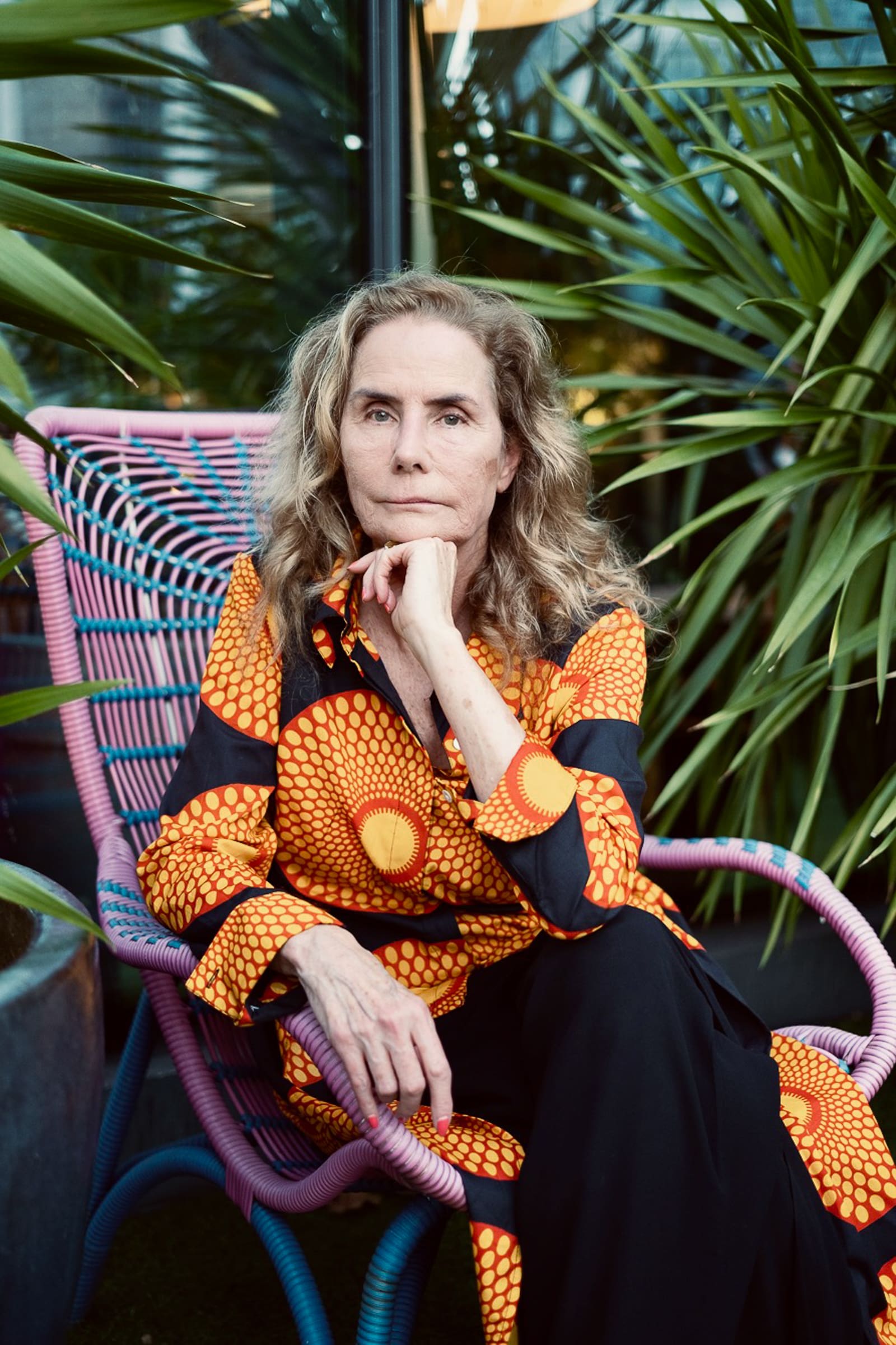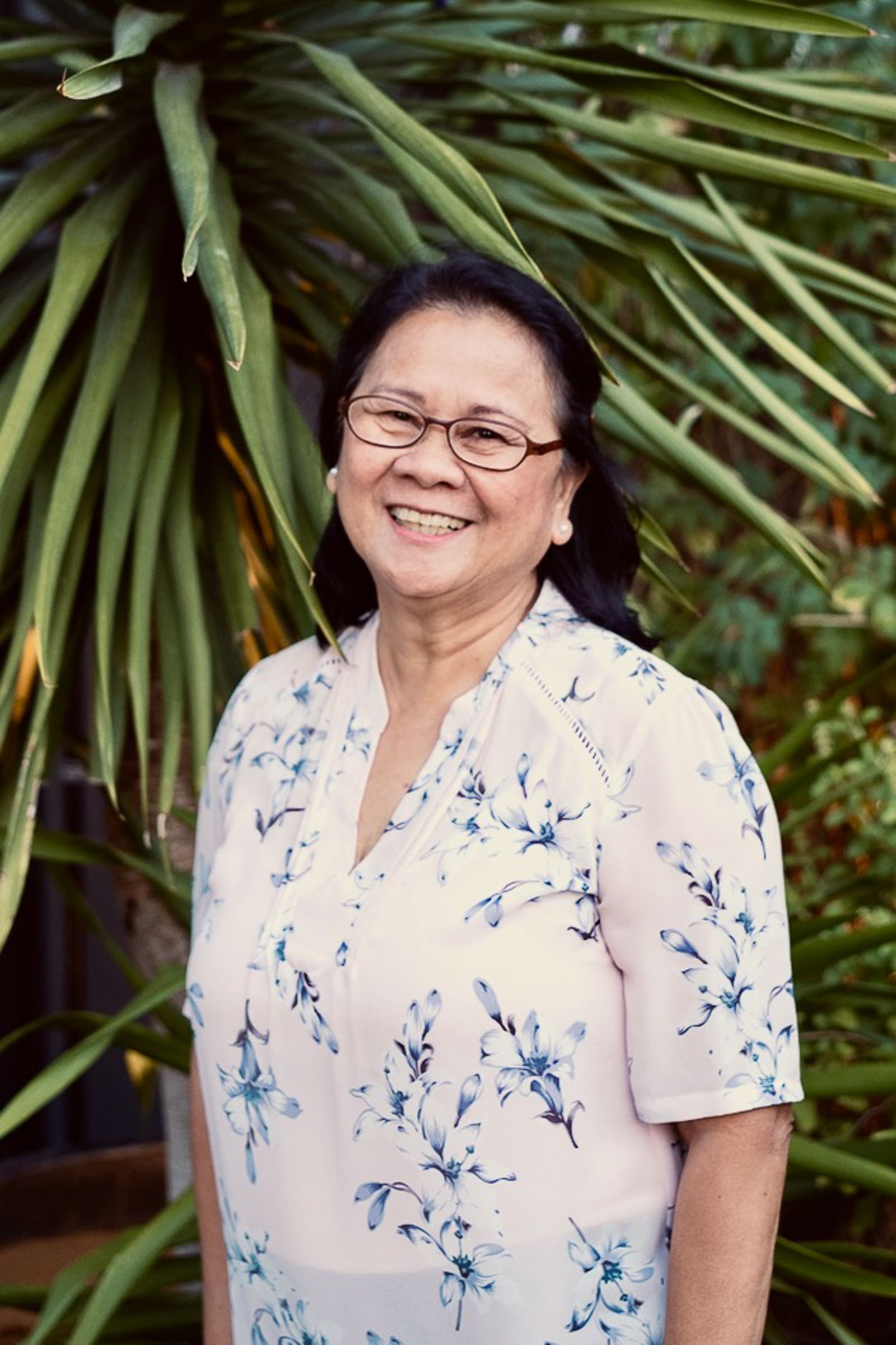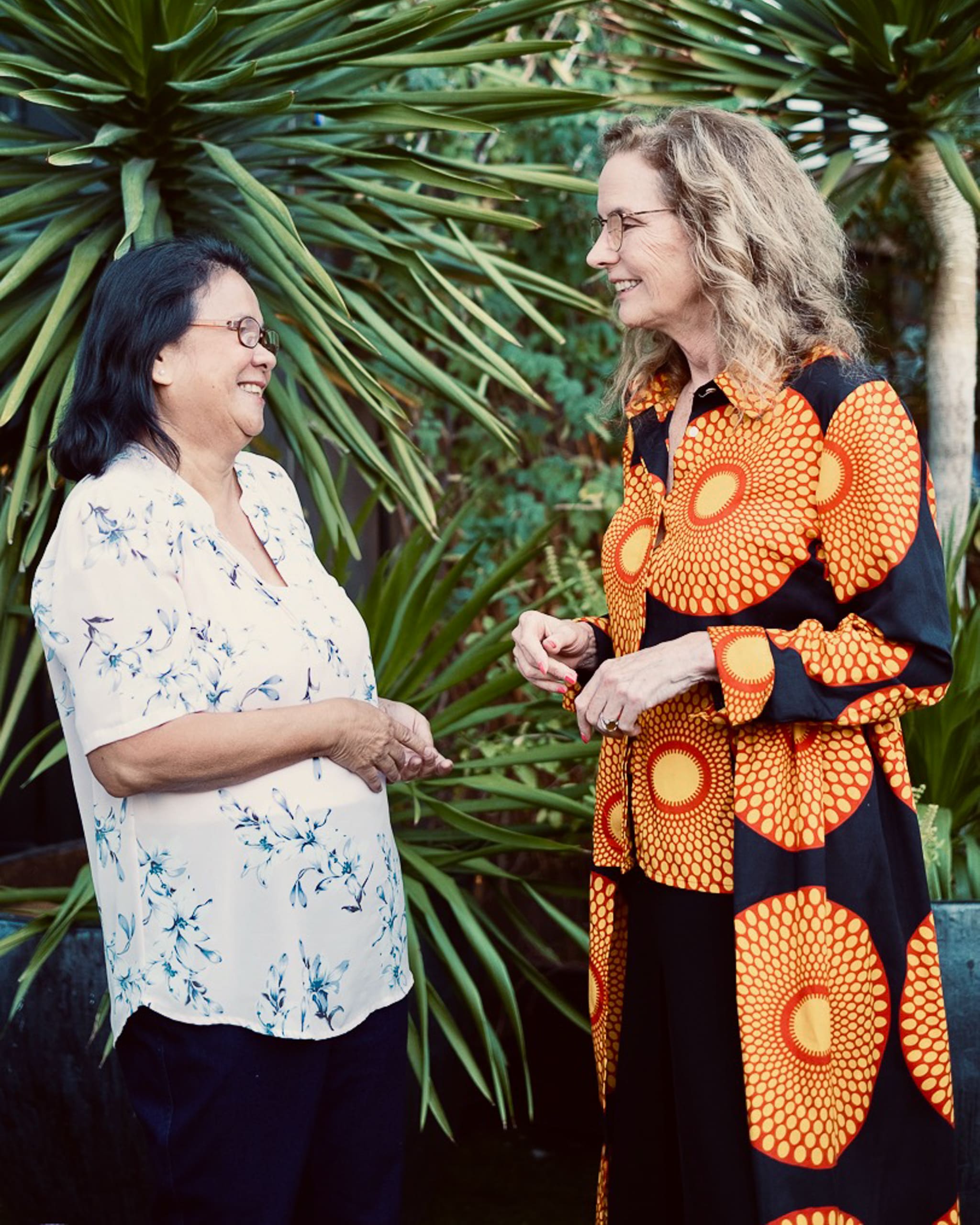Cecilia Oebanda and Katie Ford. Photo by Sofia Mareque
They seek wider support for their anti-slavery programs.
Katie Ford may be widely associated with the Ford Models agency she ran for over 20 years, but she will be remembered for her unwavering fight against human trafficking. In 2007, Katie was invited by the United Nations to participate in a conference on human trafficking, a term she had never heard of back then. She wondered what she, as the CEO of a modeling agency, could possibly contribute to the discussion. A lot, it turned out. It was her experience as a model recruiter that they wanted to hear about.
“At Ford, we recruited young girls, you know, who have a dream,” Katie tells Vogue Philippines. “We dealt with young women who came and lived with our family, and we protected them, and so the UN thought we would have ideas about how to protect people.” Shocked upon learning that there were 40 million people in modern-day slavery, she knew she had to do something.”

After the conference, Katie began to link the Ford Supermodel of the World searches with different anti-trafficking organizations on the ground. She would give talks about the dangers of going abroad to work, knowing how those with dreams of a better life can be lured with false promises. In the Philippines, where Ford had an agency, Katie partnered with Voice of the Free (formerly Visayan Forum), founded by the globally-recognized freedom fighter Cecilia Oebanda. Katie formed her own organization, Freedom for All, which provides support to ten anti-slavery organizations in six countries.
Gemith Gemparo, a New York-based pilot and former Ford model, has been organizing yearly awareness-raising events at Manila House since 2018 when she first heard a talk by Katie and Cecilia in New York. “I left the Philippines when I was 18 and I’ve been away for so long,” she says. “I wanted to help out back home, and with Katie, things came full circle.” Initially conceived as a one-time event, the first gathering in Manila generated new donors and partners and its ripple effects were felt widely, with Philippine Airlines and ICTSI ports implementing their own anti-trafficking programs.
Last week was the first talk Katie and Cecelia held together in the Philippines since the pandemic. The need for support is even greater now as the worldwide lockdowns resulted in a drastic rise in human trafficking, particularly online sexual exploitation. “The Philippines is the epicenter of online sexual exploitation,” Cecilia affirms. “There was an increase of 264 percent in the first wave of the pandemic. Before the end of the year, we had around 1,600 documented cases not only for sex, but also for labor. And it’s just the tip of the iceberg, because human trafficking is an underground business, so whoever we capture are actually just those who are visible.”
Oebanda became an anti-trafficking activist after her own experiences of having freedom taken away from her. A political prisoner during Martial Law, Cecilia gave birth to a son who spent the first four years of his life behind bars. But she feels that her suffering was nothing compared to those of the victims she encountered in her 30 years of work, from domestic workers who were forced into prostitution to toddlers who were sold on Facebook by their own parents.

“The issue of human trafficking is not only in the Philippines—we’re also dealing with the demand side. Educating the other side of the world is important, but on our side, we also need to influence more people. We need influential people to be on our side, to organize, to use their voice to help forward our advocacy and the message of how to protect people from human trafficking,” Cecilia says. “Katie, as a foreigner, has been doing this for such a long time. She’s capable of giving compassion and kindness to the girls, and we are hoping to also find this kind of spirit here.”
Voice of the Free runs a shelter called Center of Hope which houses rescued victims of trafficking and abuse. Apart from physical care, the children (as they are most often children) undergo holistic psychosocial interventions to address their trauma. Art and music therapy, sports, legal services and counseling are combined with livelihood and skills training to help the survivors successfully reintegrate into society.
Jane, a former victim, shared her story with the audience. She was 11 years old when she was trafficked for sex and 15 by the time she was rescued and placed in the shelter. With counseling and care, she was able to return to her studies and is graduating from high school this year. What’s more, she continues the work for the next generation as an advocate in the iFight movement, a youth-led campus initiative against modern slavery with awareness campaigns on areas where Filipino youth are most vulnerable, on social media.
The stories of the trafficked victims are heartbreaking, but the transformations of those the Voice of the Free have rehabilitated are nothing short of inspiring.
“It’s really a journey together,” Cecilia says. “When they come to the shelter, our policy is to just accept and embrace who they are. It may take some time to recover. But it’s just heart to heart, spirit to spirit, love to love, because that’s what they really need, and from there they will be able to dream again. They’re able to have hope again. And that’s where the empowering starts.”
